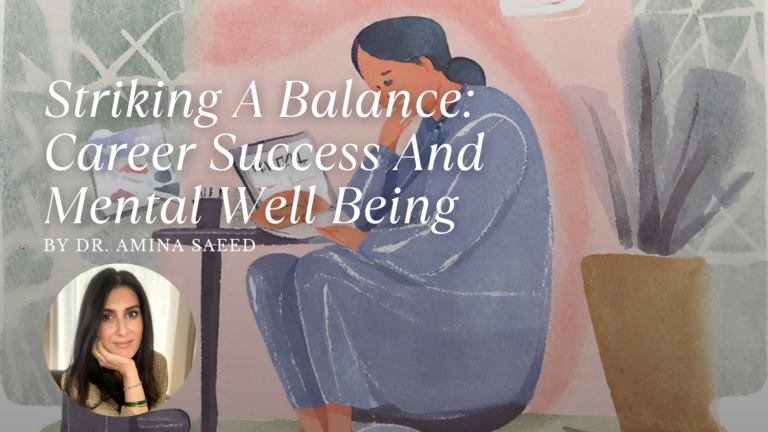By Dr. Amina Saeed
People are often admired for climbing the socioeconomic ladder in ways that impress the world, even if they conceal their silent struggles.
Both genders experience burnout during their careers, but stereotypes and societal norms can make it especially taxing and challenging for men to identify, acknowledge, and speak up about their mental wellness. Our society conditions individuals to hide their hardships , especially men, where it’s seen as a sign of weakness. Due to societal pressure and stigmas, it’s commonly accepted that men should “man up” or “suck it up” regardless of their difficulties. The head of the family isn’t allowed to address what’s going on in his mind, nor show any signs of emotional vulnerability at work or home. Excessive work pressure can lead to emotional fatigue, affecting relationships with friends, family, and colleagues.
Men often become engrossed in their careers and forget to take breaks to care for their mental health. It’s only when they feel suffocated that they realize it’s time to prioritize it and strive for a work-life balance.
Achieving this balance may seem elusive, but one can start by taking small steps. Here are some ways in which career burnouts can manifest and affect your mental health:
1. Physical symptoms:
Fatigue, insomnia, headaches, muscle aches and pains, gastric issues and a weakened immune system, leading to depression and anxiety.
2. Emotional and mental symptoms:
Feelings of hopelessness or emptiness, a feeling of “it’s never enough,” detachment, social withdrawal, negative attitude, decreased focus, lack of motivation, decreased productivity, procrastination or substance abuse.
3. Chronic issues:
Chronic health conditions like diabetes, cardiovascular issues, auto-immune diseases and mental health disorders.
The most crucial step is recognizing how career responsibilities can significantly impact men’s mental health and reassessing our expectations of them. Some of the social pressures that require serious consideration include:
- Expectations of the provider role
- Linking financial success with masculinity
- Comparing oneself with peers
- Fear of failure
- Gender norms and stereotypes dictating that men prioritize their careers over their well-being
- Stigma associated with masculinity and success criteria
It’s vital to prioritize and manage your time, energy, and efforts in a manner that doesn’t lead to a cascade of mental and physical health issues. One key aspect is adaptability in today’s fast-paced world, where success is often measured by material achievements and authority rather than by health, peace, and happiness.
Let’s collectively strive to comprehend the importance of balancing mental health and career responsibilities, and establish boundaries that enable men to take breaks without feeling guilty or pressured. Understanding the significance of both physical and mental well-being is crucial, because, “Jaan hai, toh Jahan hai.”
Dr. Amina Saeed
Writer is a freelance journalist who works on issues related to mental health and well-being. She is a yoga expert and conducts meditation and breathing sessions



